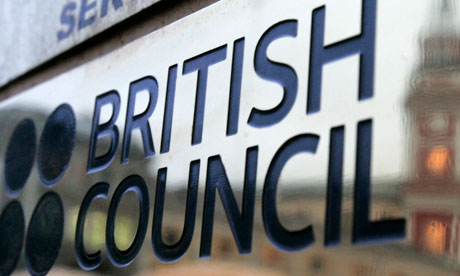
Export ... ELT advice from agencies such as the British Council is called into question. Photograph: Alexander Demianchuk/Reuters
Opinion
Topics reported on recently in Learning English give me grounds for concern about internationally driven efforts to strengthen the learning of English. They suggest strongly that Tesol/ELT is part of the problem rather than the solution. There is increasing evidence that what is on offer may in fact cause educational failure.
Is Anglo-American expertise really relevant in all such contexts? In fact educational "aid" worldwide does not have a strong record of success. There is scholarly evidence, for instance from Spain, that primary English is not an unmitigated success story: quite the opposite.
For Namibia a great deal of educational language planning was undertaken at the United Nations Institute for Namibia prior to independence. I summarised this in my book Linguistic Imperialism (OUP, 1992), quoting solid evidence that an over-reliance on English was inappropriate. Yet this is what British Council "advisers" in independent Namibia were instrumental in implementing.
British policies in Africa and Asia have aimed at strengthening English rather than promoting multilingualism, which is the social reality. Underlying British ELT have been key tenets – monolingualism, the native speaker as the ideal teacher, the earlier the better etc – which the same book diagnoses as fundamentally false. They underpin linguistic imperialism.
British goals both in the colonial period and today are primarily political and commercial. The British Council's Annual Report 2009-10 states that for the equivalent of every $1.60 of taxpayer's money it receives, it earns $4 through its English teaching and examining worldwide. ELT is of massive importance for the British economy. This underlies expansion efforts in India and China, where it has had very mixed success, except perhaps in commercial terms. David Graddol's 2010 report English Next India, commissioned by the British Council, uses similar arguments to those articulated 180 years earlier by Thomas Babington Macaulay, a senior British administrator, in making a case for British involvement in Indian education. Influence on the learning of English may be as ineffectual as in Namibia, in this very different context.





